From the 4th century to the 14th century, people spent over a thousand years carving out the Dunhuang Grottoes spanning more than 1,680 meters from the south to the north. During the past seven decades, generations of “Dunhuangers,” from the National Dunhuang Art Institute (founded in 1944) to today’s Dunhuang Research Academy, have made enormous efforts to bring back to life the nearly extinct beauty and vitality of this medieval culture and art. From 2014 to 2015, the Shanghai Himalayas Museum and the Dunhuang Research Academy have tirelessly endeavored to present the beauty and vitality of Dunhuang to audiences in Shanghai. In addition to historical relics as well as expert replicas of grottoes and cave paintings, this unprecedented exhibition of Dunhuang in Shanghai will feature an enchanting dialogue between the treasures of Dunhuang and contemporary art.
The exhibition showcases 125 sets of original works and artifacts representing all the core aspects of Dunhuang art and culture. Highlights include eight replica caves that embody the highest artistic value of the Dunhuang grottoes; twelve copies of painted stucco sculptures; sixty copies of cave murals produced by the founding pioneers of the National Dunhuang Art Institute (precursor of the Dunhuang Research Academy), including Mr. Chang Shuhong, Mr. Duan Wenjie and Ms. Chang Shana; twenty-five copies of silk paintings and twenty pieces of cultural relics (ten carved bricks and ten scriptures) from the Dunhuang Library Cave.
The eight replica caves featured in this exhibition present a rare opportunity for audiences in Shanghai to view the interior of these grottoes. Except for the Mogao Cave 17 (Dunhuang Library Cave), all of the caves on which the seven replicas are based, are not open to the public for the sake of preservation. Mogao Cave 275 of the Northern Liang period (397-439) is one of the oldest caves at Dunhuang. The cave is home to Maitreya, the future Buddha. With a round face, a robust physique and a calm expression, he sits cross-ankled wearing a crown containing three round jewels. His sitting pose and decoration, as well as the triangular brocade-patterned backrest, suggest the integration of traditional Chinese sculptural arts and influences of Buddhist art from Central Asia.
Moreover, nine out of the twenty cultural relics on display have been designated “First-Class National Cultural Relics,” including the “Nature of the Tathagata in Nirvana Sutra (Northern Wei period).” Due to their protected status, these relics are rarely put on display to the public in the galleries at Dunhuang. Also on display will be Buddhist sutras written in Chinese, Tibetan, Khotan, Turkic, Uighur, Sanskrit, Sogdian and Hebrew scripts. Through the presentation and interpretation of these relics and historical documents, the exhibition aims to make the art and history of Dunhuang more accessible to the general public. In this vein, the Shanghai Himalayas Museum has invited a professional docent team from the Dunhuang Research Academy to provide audiences with insight into exhibited works as well as a myriad of stories behind Dunhuang.
In the past few years, the art of Dunhuang has travelled to the National Art Museum of China (Beijing), Guan Shanyue Art Museum (Shenzhen), Zhejiang Art Museum (Hangzhou) and the Hong Kong Heritage Museum, garnering popular acclaim from local audiences each time. As a museum with a focus on contemporary art, the Shanghai Himalayas Museum will contribute a new approach to presenting the art and culture from Dunhuang by constructing a dialogue between Dunhuang and contemporary art. Works such as Blue Buddha by Nam June Paik and Some People Always Tend to Believe by Qiu Zhijie will offer alternative perspectives for audiences to experience and explore the beauty and influence of Buddhist art and religion. In a sense, the contemporary artworks on display may also be seen as modern versions of “Buddha Jataka” or “tales of the Buddha.”
As a major stop on the ancient Silk Road, Dunhuang was of strategic importance in terms of connecting China and the West. The history of Dunhuang as an official county dated back to the ruling period of Emperor Wu of the Western Han Dynasty (156 BC- 87 BC). As an extension of the exhibition space, iconic landmarks such as the Yumen Pass, the Great Wall of the Han Dynasty and the Beacon Tower at Yangguan will be re-created at the Himalayas Center plaza to give visitors a vivid sense of the scenery of ancient Dunhuang. At the same time, a series of lectures by masters of Dunhuang art including Fan Jinshi and Wang Xudong will be presented during the exhibition period. As Ji Xianlin, renowned Chinese scholar has stated: “Globally speaking, there are only four cultural systems that truly have a long history, span vast geographical areas and could be considered one of a kind, namely China, India, ancient Greece and Islam…. Moreover, the four cultural systems all converge at one point: Dunhuang and the Xinjiang area in China.”
Dunhuang – Song of Living Beings will be unveiled on November 29, 2015 at the Shanghai Himalayas Museum. The exhibition is co-curated by Mr. Wang Xudong, Director of Dunhuang Research Academy, and Mr. Wong Shun-kit, Advisor to Shanghai Himalayas Museum. Dr. Yongwoo Lee, Director of Shanghai Himalayas Museum is the Artistic Director, and Ms. Fan Jinshi, Honorary Director of the Dunhuang Research Academy, and popularly known as the “Daughter of Dunhuang,” the exhibition’s chief Academic Advisor. This exhibition is made possible through the generous support of Mr. Dai Zhikang, Chairman of Zendai Group.
About the exhibition
Artistic Director: Yongwoo Lee
Academic Advisor: Fan Jinshi
Curators: Wang Xudong, Wong Shun-kit
Exhibition Dates: December 1, 2015 – March 20, 2016
Opening Hours: 10:00 am – 6:00 pm (closed on Mondays)
Organized by: Shanghai Himalayas Museum, Dunhuang Research Academy
Academic Advisor: Fan Jinshi
Curators: Wang Xudong, Wong Shun-kit
Exhibition Dates: December 1, 2015 – March 20, 2016
Opening Hours: 10:00 am – 6:00 pm (closed on Mondays)
Organized by: Shanghai Himalayas Museum, Dunhuang Research Academy
Courtesy of Shanghai Himalayas Museum, for further information please visit www.himalayasart.cn.
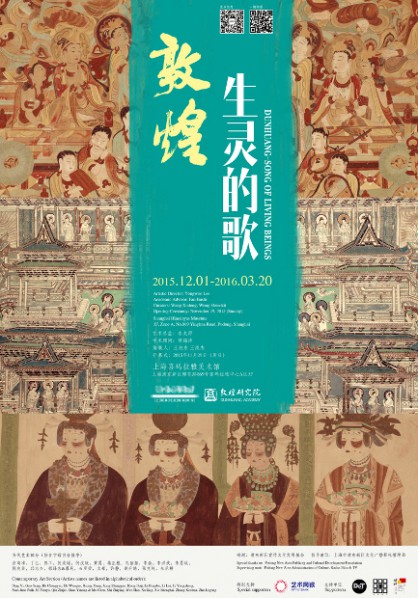
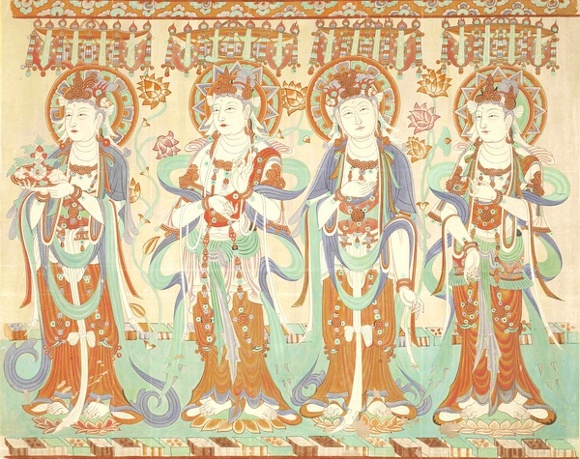
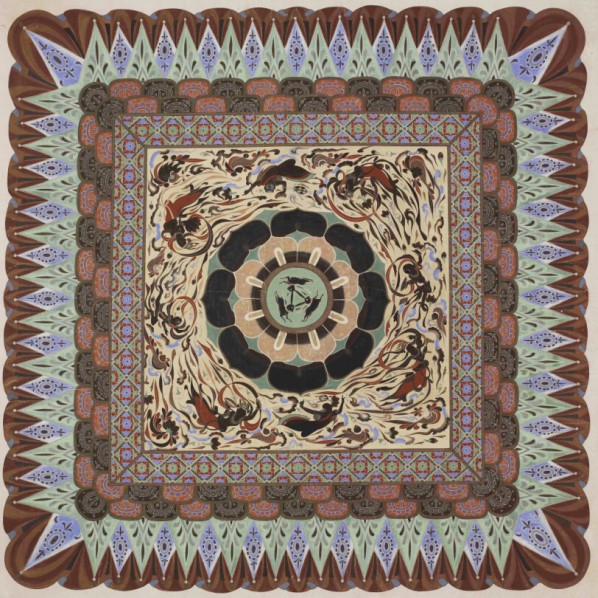
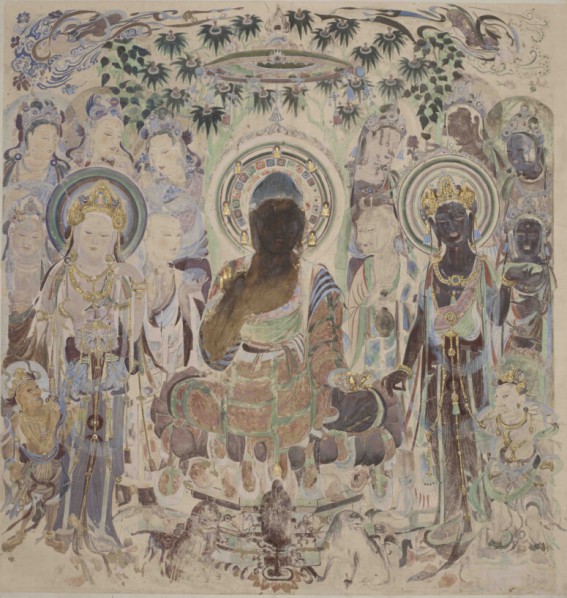
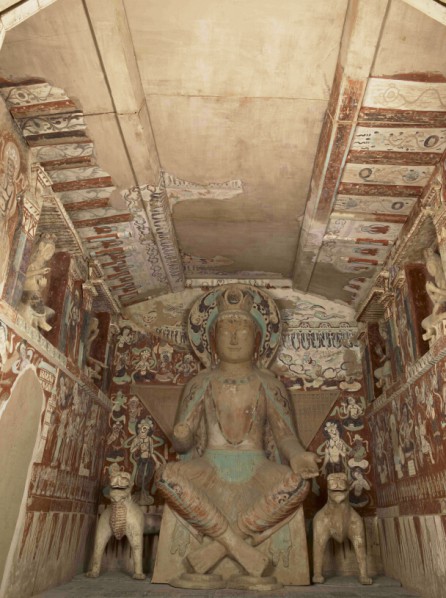

No comments:
Post a Comment